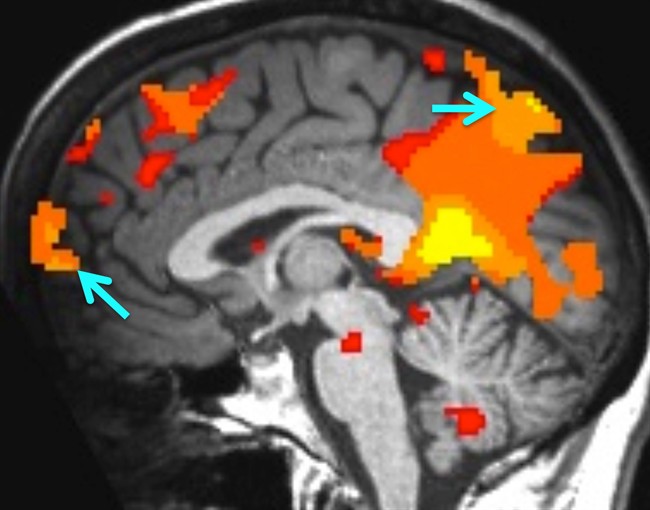TORONTO – When Susie McKinnon was a child, she had a stock answer when anyone asked if she remembered an event in her life.

“Not really,” McKinnon, now 60, would reply.
McKinnon has no episodic memory. She can’t form memories about events in her life, or relive her past by calling up images of bygone times.
The condition is called severely deficient autobiographical memory, or SDAM, a name devised by researchers at the Rotman Research Institute at Toronto’s Baycrest Health Sciences Centre, who have studied McKinnon and two other people with similar memory deficits.
The Baycrest team recently published on the newly described condition in the medical journal Neuropsychologia.
READ MORE: Remember where you were on 9/11? Study suggests memories may be distorted
McKinnon has been told she was a bit of an eccentric kid — a tomboy who read the encyclopedia for fun.
McKinnon knows these facts about herself only because she’s been told them and has committed them to memory.
In an interview, she says she only realized her memory was different when she was 21 or so. Because she couldn’t replay mental movies of her past, she made up stories, often embroidering details — some erroneous — on tales she had heard her parents or her brothers tell, or using family photos as a jumping off point.
A friend who was studying to be a physician’s assistant had an assignment to devise a quiz to detect early signs of dementia and needed someone to test it on. McKinnon’s responses struck her as unusual, prompting McKinnon to start asking others if they actually remembered episodes of their past.
- Buzz kill? Gen Z less interested in coffee than older Canadians, survey shows
- Naloxone-resistant street drug linked to 9 deaths in Eastern Canada seized in Alberta
- Bird flu risk to humans an ‘enormous concern,’ WHO says. Here’s what to know
- ‘She gets to be 10’: Ontario child’s heart donated to girl the same age
She was flabbergasted by the replies.
READ MORE: PTSD and memory – Canadian docs study survivors on plane near-disaster
“I just assumed everyone was making up stories, because I certainly was,” she says, adding she thought this was an accepted part of social interaction.
“You just think up funny little stories and just keep telling them over and over again. And that makes them true for you.”
Her semantic memory — the part that allows her to learn facts — is fine. Asking if she remembers her high school prom illustrates the difference between the two types of memory.
“If you ask me about prom, I know that I didn’t go to prom and I know that I decorated for prom. But that’s different from remembering anything about that,” she says.
McKinnon spent years, off and on, trying to find references to her type of memory issue. Before the Internet, that was tough. But nearly 10 years ago, she happened upon an article on Endel Tulving, a giant in memory studies who is a scientist emeritus at Baycrest. Tulving opined that there were probably people who don’t have episodic memory — in other words, people just like McKinnon.
READ MORE: No one’s ‘immune’ to memory distortion, even those with superior memory
She eventually reached out by email to another neuroscientist at Baycrest, Brian Levine, who has since studied McKinnon. Why not Tulving?
“Well, if you were living back in the time of Freud and you had interesting dreams, you wouldn’t go right to Freud. You’d probably go to somebody who works with him to see if they thought you were crazy or not,'” McKinnon says.
She’s ecstatic to finally have answers and to know that there are other people like her. And while in Toronto working with the Baycrest team, she got a chance to meet and thank Tulving.
“He gave me the words, he gave me the concept that matched me,” she explains.
READ MORE: As dementia sets in, artists still recall drawing from memory
McKinnon says she has no angst about her memory deficit, though she admits to occasionally feeling wistful when she hears friends recounting experiences from their past.
“I know that I’ve had some marvellous experiences, but I’ll never re-experience them the way other people do.”
Still, there are pluses. McKinnon lives in the moment and isn’t plagued by self-doubts about how she handled a situation, for instance. And she’s the first to admit she can’t hold a grudge.
READ MORE: Does shift work hurt your brain? Memory, processing affected, study warns
“It’s impossible for me to stay mad at somebody because I don’t remember,” McKinnon says with a chuckle.





Comments